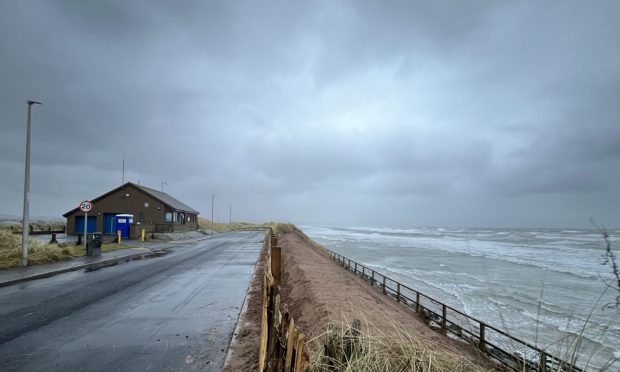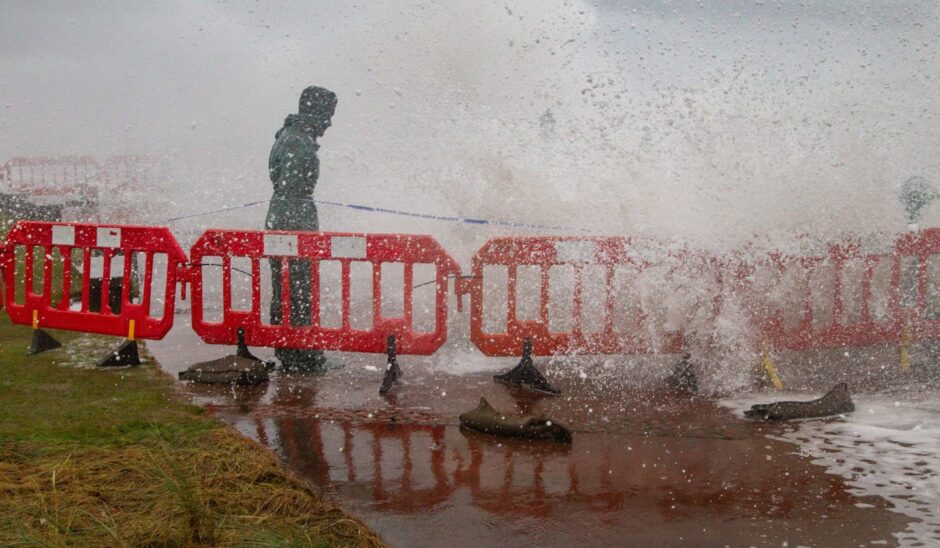Montrose Coastguard team has set up a new permanent base after storm damage forced it from the rapidly-shrinking town seafront.
The team had to move from its Traill Drive HQ beside the beach when part of the road in front of the station collapsed.
The stretch was badly weakened by Storm Babet.
And sections of the seafront eventually fell “like a pack of cards” during further severe weather and high tides.
It is part of an erosion crisis which claimed seven metres of the Montrose coastline in just a year.
More than 1,200 tonnes of rock was used to repair the worst affected sections of the seafront promenade.
But the damage led to the road outside the Coastguard station being closed for weeks.
And £250,000 was spent on shoring up the road.
The lifesaving team relocated temporarily to Montrose fire station.
It has now completed the move to a permanent base at Brent Avenue.
Modern new station
Coastal operations area commander Calum Christie said: “It’s vital our Coastguard Rescue Officers have the essential facilities they need to effectively respond to incidents so this new station is a fantastic development for the team and will allow them to serve the local community for years to come.
“I’d like to also take the opportunity to thank the Scottish Fire and Rescue Service who have allowed us to co-locate with them whilst works have been underway.”
The organisation added: “Work began back in March to turn our new estate at Brent Avenue into a modern Coastguard rescue station and we think the results are fantastic.
“The new facility has ample garage space for rescue vehicles and the maintenance of vital rescue equipment.
It also offers extra space for drying and training rooms.
Community open day planned
The station hopes to host a community open day later this year.
Plans are being drawn up to deposit more than a million tonnes of sand on Montrose beach in a bid to combat the erosion threatening the town.
It has already claimed part of the historic golf links.
And there are fears potentially catastrophic flood corridors could open up at the most vulnerable points.
Those would put low lying properties near the coast at major risk.
But it’s estimated the battle against the sea could cost at least £10 million.













Conversation